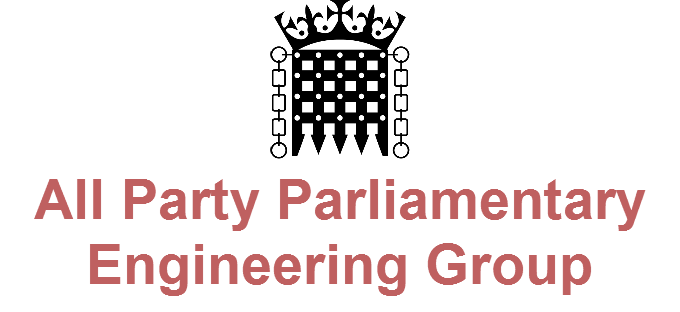The All-Party Parliamentary Group for Engineering
24 May 2022
Engineering for the Space Industry
Discussion over lunch in the House of Lords
Chair – Professor the Lord Mair CBE
Speakers:
- Lucy Edge – Chief Operating Officer for Satellite Applications Catapult
- Hamilton Law – Graduate Engineer for Surrey Satellite Technology Ltd
- Philippa Davies – Engineering Director for Reaction Engines Ltd
Lord Mair began the meeting by thanking everyone for attending and introduced the first of the distinguished speakers, Lucy Edge, Chief Operating Officer for Satellite Applications Catapult.
Lucy Edge
Lucy Edge is Chief Operating Officer for Satellite Applications Catapult. She is responsible for helping enterprises across the UK unlock the potential of space and of satellites. She is Vice Chair of the Board of the Royal Mencap Society and non-executive director of the Buckinghamshire Local Enterprise Partnership.
Lucy began her remarks by detailing her background in physics and astrophysics. She spoke of her undergraduate degree, her contributions to building a gravitational wave detector, and how being academia gave her the urge to go out and ‘make stuff and break stuff’!
She then looked back on her career pathway. Starting at the Defence Agency, she later moved to Germany and worked at the European Space Agency. One project she worked on, called Integral, explored other galaxies. She then came back to the UK to work on area satellite technology, and finally began working for a Cornwall-based satellite catapult start-up.
Lucyended her speech with a look to the exciting future of space engineering innovation. She reminded us of how projects such as building net zero solar farms and growing human organs are no longer science fiction, and will become a reality in the next months and years.
Hamilton Law
Hamilton Lawis a graduate engineer for Surrey Satellite Technology Ltd (SSTL).He studied Aeronautics and Astronautics at the University of Southampton, and attended a semester abroad at the Pennsylvania State University. He has worked on small satellite payloads to aid the UN Sustainable Development Goals and was notably part of the research team behind the development and firing of the first rotating detonation engine type rocket in the UK.
Hamilton explained that he chose a career in space to further his desire to work on the cutting edge of technology. He argued that now, more than ever, is the time to get involved in space industry, an immense sector projected to reach over 1 trillion US dollars globally over the next 20 years.
He continued by presenting some exciting new opportunities that those getting into the space industry today can look forward to. These include fighting climate change on Earth using satellite data to monitor greenhouse gases, designing feats of engineering, such as the James Webb Space Telescope and setting up a Martian colony, helping mankind become an interplanetary species.
Hamilton gave some useful advice for young people eager to kickstart their careers. He recommends joining university engineering societies, attending conferences, networking with peers, and highlighted useful online websites to find and learn about early careers opportunities within the industry.
Hamilton concludes with an overview of the innovative missions SSTL are involved in, and an exciting account of his past 18 months with the company. He outlined that SSTL are developing infrared imagers, debris removal missions and a lunar mission with the support of ESA and NASA. He explains how he’s led the design of a hyperspectral imager, flown in an aircraft with a prototype camera, and handled satellite hardware worth millions. He explains that he is now working on a prototype mission to track space debris.
Philippa Davies
Philippa Daviesis Engineering Director for Reaction Engines Ltd. Leading a team of 100 engineers across the business, Philippa is responsible for current and future engineering capability within the business, and she directs the integrated technology development programmes. Philippa’s early career was at Rolls Royce on their engineering leadership graduate scheme where she participated in exciting projects, including working in Singapore. She graduated from the University of Southampton where she studied aerospace engineering. In 2021 she was recognised for her contribution to engineering by becoming a Fellow of the Royal Aeronautical Society.
Philippa began her career in aerospace with a desire to create new ways of getting into space. She realised the necessity to transform the way people and instruments travel into space. To enable the next generation of space tourism and deep space exploration, space travel needs to be made faster and easier. She is now working on a propulsion system to do exactly this.
Philippa went on to speak about the challenges of developing new propulsion technology at Reaction Engines Ltd. She explained that it requires both engineering work and demonstration of the product’s potential. They have been running in depth tests including high temperature tests at up to 1000 degrees centigrade. Some of their products have also found unanticipated use cases, in Formula 1 cars and Net Zero Applications for example.
Philippa concludes by expanding on her role as engineering director, which involves both technical and managerial responsibilities. She manages a team of engineers and finds ways to develop the company’s capabilities, using different technologies and materials.
Q1 – Chi Onwurah MP
Question: What are some transferrable skills that can be learned through a career in the space industry?
Answer – Lucy Edge: Two things stand out to me as useful skills you pick up in the space industry. First, the ability to take in information quickly, assimilate the data, and work towards a solution. Second, I get told that engineers are really good at teamwork!
Answer – Hamilton Law: One of my placements at SSTL was being an optical systems engineer, and I’m currently a mission concepts engineer, which can be regarded as early stage systems engineering. In these roles I have developed systems level thinking that is transferrable to a multitude of industries that use systems. For example, an F1 car itself, and the process of moving the entire F1 paddock between circuits… may both be regarded as systems!
Q2 – Asil Zaidi (Institution of Civil Engineers)
Question: How can civil engineers play a role in space? We create manufacturing processes on Earth, but couldn’t some of this work be applied to space? For example, moon concrete.
Answer – Philippa Davies: The space industry needs solid infrastructure. For example, big runways and launch pads down on Earth are essential. There is lots of innovation to be made in space once space access is more readily available – such as asteroid mining.
Q3 – Ben Simmons (Student, Abingdon School)
Question: What discoveries in the space industry now have a completely different use to what was originally intended? For example, the World Wide Web and the touchscreen were developed for very different purposes for their use cases now.
Answer – Lucy Edge: When I was younger the example that was always given was Velcro, which was originally designed to keep things in place without gravity. For me it’s location data such as the Global Positioning System (GPS) and GLONASS. Nobody had a clue it would create an entire economy, down to services like Deliveroo.
Answer – Philippa Davies: Another example is thermal management. It has become a problem for the sustainable aviation market and across all sorts of industries, such as sports cars and hydrogen systems.
Q4 – Tyler Birch (Student, The Oaks Academy)
Question: Multiple million dollars are spent on fixing damaged spaceships during launch. Is there any way we can make propulsion and the take-off process more cost effective? How do we best use our investment to get stuff into space?
Answer – Philippa Davies: I think it’s about using materials and structures more sustainable to the challenges of the environment. We’re constantly learning more about what they’re going to have to endure, now we have to solve these problems.
Answer – Lucy Edge: The way that we do our engineering is going to change completely. We are going to start launching rockets into space designed like IKEA furniture! We are going to launch things tightly packed in a rocket. Then, once in space they are going to become very delicate, very extended structures.
Q5 – Nico Smith (Student, King’s College London)
Question: Legislation and regulation have lagged behind progress in space technology. How can we handle responsibility in aerospace engineering and in space more generally?
Answer – Hamilton Law: I tend to agree; that legislation is lagging. Take space debris, where some countries such as the UK enforce laws that we have to deal with it within 25 years, whereas some don’t. It is difficult to know who is ultimately going to deal with these issues, perhaps they will end up being dealt with by the UN.
Answer – Lucy Edge: Space regulation is often compared to maritime laws, where there are no borders and in the early days the rules of engagement didn’t exist. I think getting the legislation right is important because there are significant advancements, like the potential for growing organs in space. If legislation doesn’t adapt to these, then it can potentially become a blocker to progress.
Q6 – Peter Simmons (Institution of Civil Engineers)
Question: I’m always interested in when stuff goes wrong. Have you had any disasters, and what were your responses to them?
Answer – Philippa Davies: I think that’s the very nature of engineering! If you’re not taking risks, you’re probably not driving technology forward. What’s important is learning, learning is a gift of the engineering business.
Answer – Hamilton Law: Let me share a personal example. A mini disaster was when I was at university working on a rotating detonation engine rocket. Being made from stainless steel it was heavy, and when dropped it suffered a dent that required re-machining. Fortunately, as the design was modular, a small element could be isolated for this additional work.
Answer – Lucy Edge: We thought every on-board thruster on a spacecraft was going to systematically fail. We got chemical experts in to follow the propellant’s entire journey over 18 months, and in the end, everything got fixed! It was scary but we had a great time.
Q7 – Iqra Nasir (Student, Kenton School)
Question: How can we use medicine in space?
Answer – Lucy Edge: In space, the way your body takes in medication can change, because there’s no gravity. Things have to be administered differently. But you definitely can use medicine in space, in fact they already create some medicines in space because it’s more effective to do so in a vacuum.
Q8 – Carol Monaghan MP
Question: All our questions this afternoon, except the last young lady and Chi Onwurah MP, have been from men. What can we do to increase diversity in the space industry?
Answer – Lucy Edge: In my company, we have interactive bias workshops. These are very important. From my perspective, I have grown up feeling like I had to be a man to get along in this industry. But it doesn’t work like this anymore, and people doing the recruiting must understand that. These interactive workshops help address this. We also do gender measuring work. Which is a blunt instrument but gets things done at the board level to address gender inequality.
Answer – Philippa Davies: My company has a lot of diversity inclusion training. From a personal perspective, I’ve always been a minority, and the only way you can tackle that is going in early to the process and creating a model route for future young people to follow.
Q9 – Audrey Canning (Worshipful Company of Engineers)
Question: Can the UK once again have a leading role in space technology?
Answer – Hamilton Law: There is going to be a horizontal launch this summer at the spaceport in Cornwall, making the UK a European leader. There are also the vertical launch spaceports in Scotland. My hope is that the launch of spacecraft itself becomes cheaper in the UK, so UK companies will no longer need to send satellites to America or India but can launch them directly in this country, without the associated logistical challenges of shipping abroad.
Q10 – Sae Ah Yoon (AECOM)
Question: How can the space industry expand in the UK?
Answer – Lucy Edge: One of the major blockers to UK expansion is a lack of skills. For that, we need lots of young people interested in space, and government funding to match that of other countries. We need to leverage what we have in a more inventive and innovative way.
Q11 – Martin Salto (Space Energy Initiative)
Question: How can we harness the UK’s green energy potential to transform the space sector? How can we work with Parliamentarians to have a much more joined up approach between these two sectors?
Answer – Lucy Edge: I think, in Parliament, we need to normalise the fact that things that used to be science fiction are now possible. So, we can transform national infrastructure in ways that were never possible before. Let’s change the way we think. Also, we tend to think about space as a bit bet, that we invest cautiously in. I think we need to be a bit bolder with our investments.
Q12 – Dilani Selvanathan (Herotech8 Ltd)
Question: I have a background in physics and mathematics, as a software engineer, and I am finding it hard to get into the space industry, particularly for Systems Engineering roles. What further qualifications or courses can be useful for breaking into aerospace?
Answer – Hamilton Law: We need a lot of software engineers in the space industry! There’s a number of roles, such as on-board processing, where skilled software engineers are required. If you are particularly keen on systems engineering positions, you may be able to join a space company as a software engineer and then transition within the company. More generally, to get a start in the industry, internship positions, are a good way of getting a hands-on experience.
Q13 – Madeleine Wright (St Helen and St Katharine School)
Question: What is the overlap between classical physics, and quantum and particle physics used in the space industry?
Answer – Lucy Edge: Recently, a lot of work in the space industry is about commercialising R&D in the UK. We’re starting to see classical physics, mathematics, and other disciplines, feed into the way that we create the entire space system. For example, the role of Artificial Intelligence (AI) in designing and controlling spacecraft.
Professor the Lord Mair closed discussions by thanking our distinguished speakers, excellent guests and event organisers. He echoed the comments made by Lucy Edge, that the current skills shortage means engineers are in high demand across the country. He reminded young people of the wide variety of roles in the engineering sector that have been discussed, and encouraged them to pick something that they truly enjoy doing.


